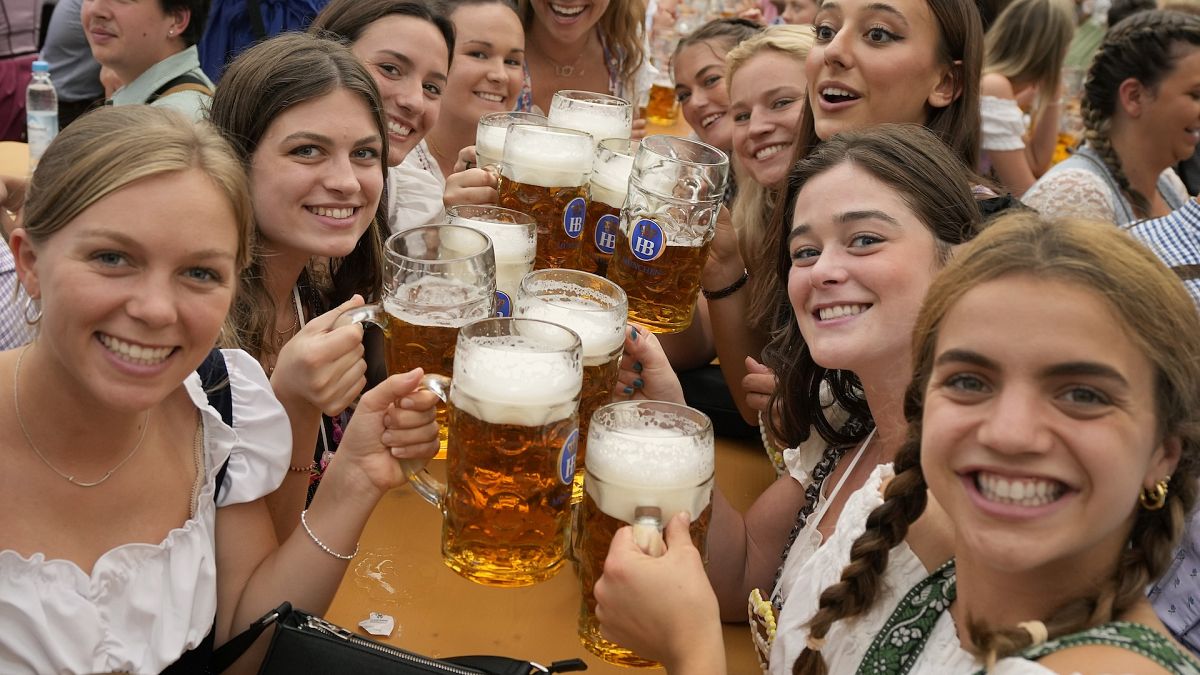Beer prices vary widely across European capitals, with the highest costs found in the Nordic region, the UK, and France. The rankings shift significantly when considering the price level for alcoholic beverages calculated using purchasing power parities.
It’s time for the 2024 European Championship. Football fans are gearing up for the excitement of the matches, and for many, this means enjoying a beer while watching their favourite teams compete.
However, the cost of this experience will vary significantly depending on where fans are located or travelling to. Recent data reveals stark differences in the prices of domestic draft beer and the overall price level of alcoholic beverages across Europe, highlighting the varying costs fans can expect to encounter.
According to Numbeo, a user-generated cost-of-living statistics website, the prices of domestic draft beer (0.5 litre) at restaurants or pubs range from €2 in Sofia to €8 in Copenhagen among the EU capitals.
Nordic countries have the highest beer prices
Including the European Free Trade Association (EFTA), the UK, and EU candidate countries, Reykjavik in Iceland tops the list at €10 per beer, closely followed by Oslo at €9.6.
Copenhagen and Helsinki come next, with an average price of €8 per beer.
You need to pay over €7 for a draft beer in London (€7.7) and Paris (€7). In Switzerland’s Bern, it costs €6.7
Although three cities rank above Stockholm (€6.7), the Nordic countries overall have the highest beer prices in Europe.
This indicates that fans in these cities will need to budget more for their match-day beverages compared to other locations.
In contrast, cities like Kyiv, Minsk, and Chisinau offer significantly cheaper options. Kyiv has the lowest price at €1.1 per beer, followed by Minsk at €1.2 and Chisinau at €1.3.
Beer prices are also comparatively lower in Madrid (€3.5) and Lisbon (€).
These are all nominal prices and do not reflect purchasing power standards (PPS). This significant price disparity highlights how beer prices can reflect broader economic conditions and local market factors.
Price variations within countries
Beer prices can vary significantly within some countries, making it cheaper in some cities. The UK is a prime example: while a beer costs €7.7 in London, you can enjoy one for €4.3 in Coventry, €4.8 in Aberdeen, and €5.2 in Sheffield.
Where is the cheapest and most expensive alcohol in Europe?
Price level indices (PLIs) provide a comparison of countries’ price levels relative to the EU average, calculated using purchasing power parities (PPP). If the PLI is higher than 100, the country is relatively expensive compared to the EU average. Conversely, if the PLI is lower than 100, the country is relatively inexpensive compared to the EU average.
In 2022, according to Eurostat, EU’s official statistical office, Iceland (297% of the EU average) was the most expensive country for alcoholic beverages whereas Hungary (82%) was the cheapest among 37 European countries.
In the EU, Finland was the most expensive country for alcohol, with a price level index of 213%, closely followed by Ireland (210%).
Similar to nominal prices, the Nordic countries have the highest price level index for alcoholic beverages. The top three are Nordic countries, with others also ranking in the top eight.
The cases of Turkey and Greece are also noteworthy. In these countries, the price levels of alcoholic drinks are significantly above the EU average, at 173% and 153%, respectively.
UK more expensive while EU’s ‘Big Four’ are cheaper
When examining Europe’s five largest economies, the price level for alcoholic beverages in the UK (139%) was higher than the EU average. Although the UK data is from 2020 and not directly comparable to 2022, it still provides valuable insights overall.
The index was just below the EU average in France at 99.9%. In Spain, it was 97.6%, in Italy 89.3%, and in Germany 86.7%, indicating that alcoholic beverages are cheaper in the EU’s ‘Big Four’ compared to the overall EU average.
The price level for alcohol was approximately 3.6 times higher in the most expensive country compared to the least expensive one among 37 countries. Within the EU, this difference was 2.6 times.

